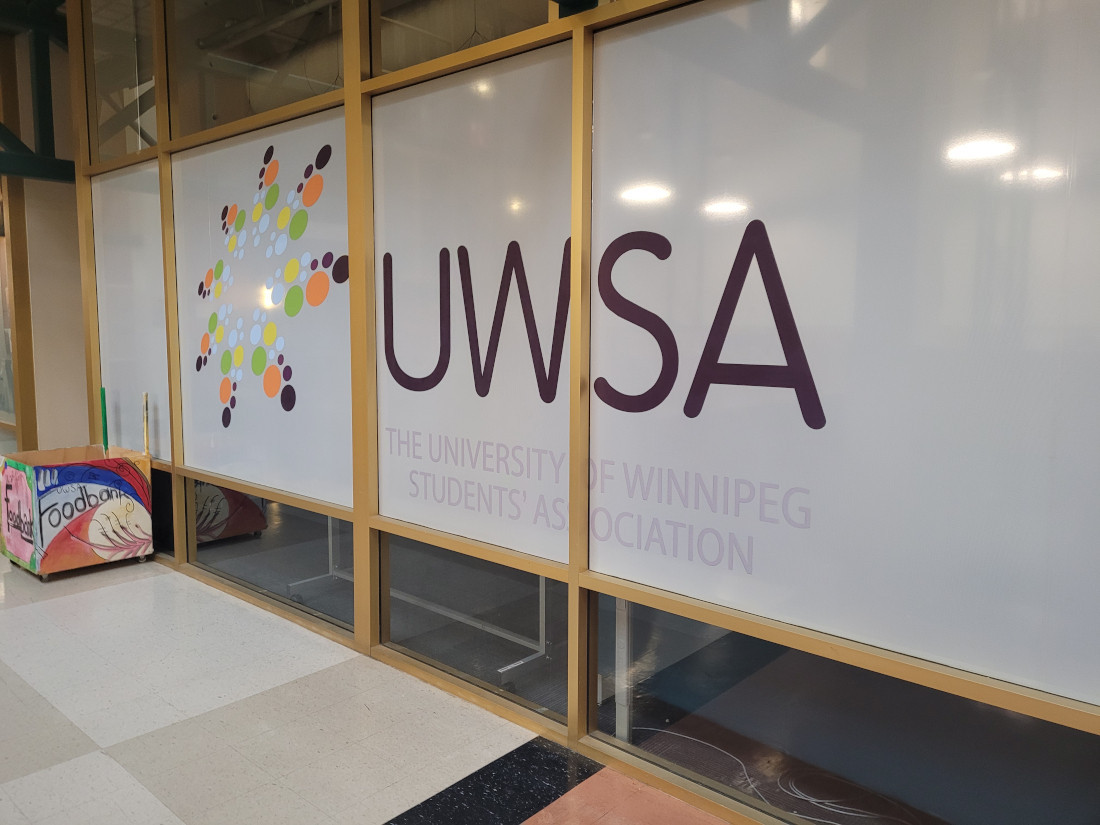Reforms to UWSA election rules ahead of vote
Slates restored, but not everyone is happy
On Jan. 18, the University of Winnipeg Students’ Association’s (UWSA) board of directors approved a swath of reforms to the organization’s election rules.
The reforms address many aspects of the process by which University of Winnipeg (U of W) students elect their representatives in the UWSA executive. These include the return of slates, which means a group of two or more students who are members of a single campaign each run for a different position.
The reforms were proposed in response to “several periods of conflict” during previous UWSA elections, according to the UWSA’s package outlining the reforms. The conflicts in question go back to February 2020, when a slate of candidates was allegedly subjected to a campaign of racist harassment by David Teffaine and Sam Cohn, associates of Envision, a rival slate, which eventually won the election.
The Envision slate initially defended Teffaine, but when photos of him in blackface surfaced online, the Envision candidates resigned, with outgoing president Jibril Hussein calling the UWSA a “toxic environment ... (that) perpetuates the same pervasive racism and prejudice they claim to actively be against.”
Later, during the 2022-2023 election year, there were three different complaints made to the Election Accountability Board against current president Kirt Hayer. This included allegations from within the UWSA that Hayer had made racist comments. The UWSA engaged outside legal counsel to investigate the claims. On Jan. 31, the UWSA released the findings of the investigation, proclaiming that Hayer is “fully exonerated of these allegations.”
Thomas Hanan, the UWSA acting general manager, says initial changes to the election process first took place while classes were online due to the COVID-19 pandemic. However, returning to campus illustrated that “some of those things that worked okay virtually started to not work.”
Hanan says a majority of the changes were influenced by both candidate and staff complaints about the previous election. He says the reforms were created to improve the experience of candidates and to create a positive experience for all those involved in the election process.
“After the byelection, my predecessor compiled all the comments from the candidates, as well as from the staff, and everything that happened and came up with a proposal.”
While online voting was introduced during lockdown, Hanan notes the inaccessibility issues built into the previous election process.
“Students could only vote during certain times when the polls were open in certain locations, and if their schedules didn’t always align right, or if they were online students, they couldn’t really vote at all.”
Shawna Péloquin, who served as president of the UWSA for the 2020-2021 academic year, is unhappy with the reforms, particularly the reintroduction of slates.
“(During my election cycle) we had three slates that just went at each other’s throats, and it turns out that a lot of people were harmed emotionally in that election process,” she says.
Péloquin says the previous electoral system wrongly mimicked the colonial system, partly by the creation of slates, in which students were placed in competition against each other. She also believes the clashes involving Envision affected the UWSA’s functionality.
“So with my board, we made a promise that this would not happen again,” Péloquin says. “When you are elected as an executive, you’re supposed to represent all the students and not just the ones that agree.”
Although slates have been reinstated, Hanan says it is only for executive positions. Due to the managerial role of executives, he says “starting off having some sort of connection can be beneficial.”
The 2022 byelection saw an 11 per cent voter turnout, the highest byelection engagement since 2014, when the U-Pass vote was decided.
Hanan and Khushneet Kaur, the chief election commissioner, both encourage students to run for office.
“Each and every student at the University of Winnipeg is involved in making changes to the UWSA, which is really great,” Kaur says.
The UWSA general election campaign period runs from March 6 to 15, with voting open from March 13 to 15. For more information, visit theuwsa.ca/elections. For a complete list of election reforms, visit bit.ly/3mgQZpX. Read the final report on the investigation into allegations against president Kirt Hayer at bit.ly/3IGCu6E.
Published in Volume 77, Number 20 of The Uniter (March 2, 2023)








